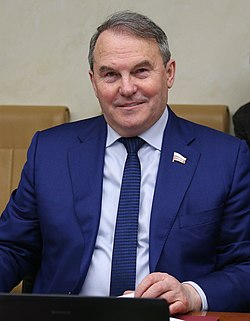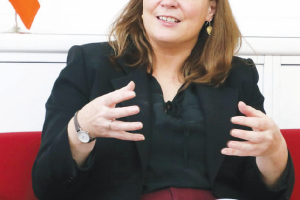
Diplomatic relations between Russia and Ethiopia were established in 1898, interrupted in 1917, and resumed in 1943.
The regime change in Ethiopia in 1991, as well as the breakup of the Soviet Union, resulted in scaled-down bilateral cooperation. The revival of the political dialogue between the two countries started in the mid-1990s.
Ethiopia and Russia have enjoyed strong bilateral relations for years, with growing cooperation in infrastructure development, military collaboration, and energy projects. Russia has also expressed interest in supporting Ethiopia’s energy sector and investing in the country’s natural resources.
The recent elevation of Ethiopia’s status as a BRICS member, effective January 2024, has further solidified the partnership between the two nations. As a member of the BRICS group, Ethiopia is positioned to play a more influential role in strengthening Russia-Ethiopia relations, fostering greater alignment in regional and global economic and geopolitical affairs.
Trade and economic relations between the two countries are based on the Agreement on Economic, Scientific and Technical Cooperation and the Trade Agreement of November 26, 1999. The foreign trade turnover of Russia and Ethiopia in 2021 amounted to $225.2 million and increased by 359.2% compared to 2020.
This week, for instance, the Russia-Ethiopia business forum, titled “RUSSIA – ETHIOPIA: TIME DOESN’T WAIT!” took place in Addis Ababa with the goal of expanding economic cooperation and strengthening bilateral relations between the two nations. The Forum had been focused on crafting a roadmap for collaboration, emphasizing sectors that are mutually beneficial to both nations.
Today’s guest, Igor Morozov, is the President of the Coordination Committee on Economic Cooperation with African Countries (AFRICOM) and a Senator of the Federation Council of the Russian Federation.
In a brief interview with The Ethiopian Herald newspaper, Morozov discussed a range of issues related to strengthening business partnerships by creating favorable conditions for Russian investors and elevating the trade relations between the two countries.
What is the purpose of this forum?
Africa is a continent with a productive population and immense resources, reiterating the commitment of Russia to deepen cooperation with the country in a wide range of areas including trade, economy, science, education, digital technology, health and agriculture.
The Ethio-Russia business forum is a promising landmark to foster and bolster bilateral economic cooperation in trade and investment sectors between Ethiopia and Russia. The forum would further ignite the untapped economic opportunities and doing businesses between the two brotherly nations.
The forum will pave the way for increased economic engagement, underlining the potential benefits of the forum for both countries. Russian businessmen have come to Ethiopia to establish direct contacts with their partners in various sectors of the economy, focusing on IT technology, digitalization, and electric car manufacturing. They are all prominent leaders in the Russian economy.
We represent different sectors of the economy, such as IT technologies, digitalization of the economy, machinery specifically in the production and assembly of electric vehicles.
How many companies are represented here?
On this forum, we represent 34 Russian companies from different regions of the Russian Federation. They are eager to invest in Ethiopia in areas such as energy, agriculture, construction, communication, information technology, and other sectors.
The forum is expected to serve as a crucial platform for fostering stronger economic ties, with discussions focused on investment opportunities and trade partnerships between the two nations.
Moreover, the forum will provide an opportunity to strengthen Ethiopia-Russia relations, reflect a shared vision for future growth and collaboration, explore various avenues for partnership, and further solidify the strategic alliance between Ethiopia and Russia.
These companies are leaders in the Russian Federation, specializing in electric buses, lithium accumulators, solar panels, and other technological advancements.
Why did Russia choose to do business with Ethiopia now?
After the first Russia-Africa summit in Sochi five years ago, we turned to Ethiopia as the first country to consider for business. A year later, we opened AFRICOM’s continental office here, making Ethiopia our starting point for expanding into other African countries. We have witnessed the rapid development of Ethiopia, with a favorable investment climate, free trade zones, and industrial parks being established.
Impressed by Ethiopia’s progress, we decided to initiate a series of forums and business conferences in the country. Following the summit in Sochi, Ethiopia was our first destination, and we had no doubt in choosing it as our business platform. With the opening of our continental office in Ethiopia, we set our sights on entering other African markets from here.
Ethiopia’s dynamic development and creation of favorable investment opportunities, including free trade zones and industrial parks, further solidified our decision to focus our business activities in Addis Ababa.
Both Ethiopia and Russia are members of BRICS. How do you explain the cooperation between the two countries in terms of business?
Yes, both Ethiopia and Russia are BRICS members. I believe that Ethiopia joining BRICS will greatly boost the development of bilateral relations.
In general, to foster relations between Ethiopia and BRICS countries, particularly with the Russian Federation, simplifying the payment system is crucial. The current payment system is a major obstacle to trade between Russia and Ethiopia. Ethiopia’s membership in BRICS is expected to streamline the payment process and facilitate economic cooperation between the two countries.
Working within the BRICS framework will also provide an opportunity to establish a new unified system of legislation and payment methods. Additionally, for Russian businesses in Africa, it is essential to have a system that encourages investment and protects capital investments. This is a mutually beneficial arrangement, as Russia possesses abundant natural resources.
Ethiopia has a plan to industrialize by 2030, and Russia has all the raw materials to supply. However, the current payment mechanism is not in place. Do you think BRICS will address this issue and boost business between the two countries?
Yes, definitely. We have a program to industrialize by 2030 and recognize that Russia can supply a significant amount of raw materials. As you mentioned, there are obstacles in the payment systems.
Do you think BRICS can help remove these barriers?
I believe that within 1-2 years, we will establish a common platform for economic activity through BRICS. The new development bank will offer various credit programs, cryptocurrency options, and new economic instruments. This will be crucial for external economic contracts and the repatriation of investment capital.
Overall, this development will be essential for business operations and provide opportunities for investment capital repatriation.
How does the Russian government support Ethiopia, particularly in trade?
AFRICOM is a business platform for entrepreneurs looking to work in Africa, inviting those willing to invest in technology and new knowledge, which is crucial. The existence of state-level relationships is also significant. With BRICS now involved in Ethiopia, it is likely that not only interstate relations will develop, but also business connections across various sectors of the economy, where private ownership, technologies, knowledge, and ideas from the Russian Federation will play a major role. How can businessmen establish business ties in Ethiopia? Russian businessmen are prepared to invest in technology and new knowledge in Ethiopia.
Regarding government support, I believe it operates at a different level. However, with Ethiopia’s acceptance into BRICS, I am confident that we will soon establish intergovernmental and business connections across different sectors of the economy. In Russia, the economy is primarily driven by the private sector, private knowledge, and private ideas.
The declared theme of the Forum reflects the trend of activating business partnership between Russia and Ethiopia. This event will become an important platform for exchanging opinions and forming “road maps” for interaction in priority areas of bilateral cooperation, primarily in the fields of transport and construction, IT technologies and cyber-security, agro-industry and tourism.
How do you evaluate the interest of Russian companies and individuals in investing in Ethiopia?
I see how appealing Ethiopia is to Russian entrepreneurs and businessmen, and this is due to several reasons. Firstly, the ancient history of your country, the Orthodox religion that unites us all, and the long-standing friendship established during the Soviet-Ethiopian relationship.
Another point to consider is the significant number of Ethiopian students studying in the Russian Federation, which we welcome. We hope that the universities present today will work to enhance the potential of our university education, enabling young people who study in Russia to bring back new knowledge to Ethiopia’s evolving economic landscape.
This exchange will lead to a synergistic effect on the development of both the Russian and Ethiopian economies. Additionally, we are pleased with the increasing number of Ethiopian students pursuing higher education in the Russian Federation.
We hope that our universities participating in this forum will continue to expand and maximize the potential of our scientific advancements for these students who choose to study in Russia. These highly qualified specialists will return to Ethiopia, contributing to a new economic environment and fostering real synergy between the Ethiopian and Russian markets.
How do you assess the investment attractiveness of Ethiopia?
Ethiopia is one of the largest countries in Africa, with a population of over 120 million people, demonstrating impressive economic growth and providing extensive opportunities for investment.
The Ethiopian government has approved the program “Economic Reforms for Internal Development,” which offers broad investment opportunities in priority business areas. Additionally, various benefits and preferences are provided in terms of taxation, customs duties, investment protection and return, as well as the opportunity to operate in a free trade zone.
The country places significant emphasis on training engineering and technical personnel, boasting a well-trained labor force. These factors, among others, make Ethiopia an appealing destination for investors from various countries, including Russia, with which Ethiopia has established long-term and close relations. Chinese, Indian, and Turkish companies are actively involved in business activities in Ethiopia.
Forum participants from Ethiopia have had the chance of deliberating with Russian partners, showcasing the investment attractiveness of Ethiopia. Russian businesses have also explored the promising market of this East African country, which has been a member of BRICS since January 2024.
Thank you for your willingness.
It is my pleasure.
BY GIRMACHEW GASHAW
THE ETHIOPIAN HERALD SATURDAY 16 NOVEMBER 2024





